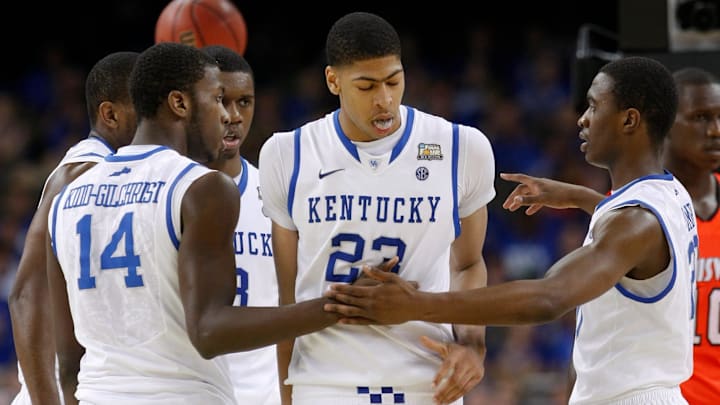NCAA President Charlie Baker has stirred the basketball world with his suggestion to expand the NCAA Men’s Basketball Tournament to include 72 or even 76 teams. This potential change raises questions about how such expansion could affect the tournament, widely regarded as one of the most thrilling and effective postseason competitions in college sports. Some would say the only effecitve one.
NCAA president Charlie Baker says progress is being made in expanding the tournament to 72 or 76 teams, via @RossDellenger
— College Basketball Report (@CBKReport) December 11, 2024
It is not expected to go over a 76-team field. pic.twitter.com/KAEHDRdS0T
Unlike other NCAA tournaments, such as baseball’s complex regional and super-regional structure or football’s controversial playoff format with the 4 byes; the NCAA Men’s and Women's Basketball Tournaments have achieved consistent success with straightforward, single-elimination style. The basketball tournament has historically delivered iconic moments, fostering excitement for fans and creating opportunities for underdog teams to shine at the expense of big names. Expanding the field could maintain—or even amplify—that magic sure, but it also risks altering the dynamics of a system that many already view as perfect.
For Kentucky basketball, the tournament’s history is filled with unforgettable highlights. Kentucky’s “Comeback Cats” famously erased a 17-point deficit against Duke in the 1998 Elite Eight en route to winning the national championship, the second in three years.
Happy birthday to 1998 national champion Scott Padgett, whose late 3 helped cap off a 17-point second half comeback in Kentucky's Elite 8 win over Duke. #BBN pic.twitter.com/INoEmdZonN
— catsclassics (@catsclassics) April 19, 2024
More recently, Aaron Harrison’s clutch three-point performance in 2014 lifted the Wildcats past Michigan in the Elite Eight and Wisconsin in the Final Four, solidifying March Madness as a stage for unbelievable heroics.
However, critics argue that expanding the tournament might dilute the intensity of early-round matchups, which are already brimming with excitement and high stakes. Additionally, expanding beyond 68 teams could introduce logistical challenges, including balancing schedules and ensuring fairness in seeding.
Baker’s suggestion reflects the NCAA’s desire to grow its brand and revenue, but fans and analysts are cautious. The Men’s Basketball Tournament stands as the crown jewel of collegiate sports postseason events. Any changes, supporters argue, must enhance rather than compromise the structure that has produced Cinderella runs, buzzer-beaters, and enduring memories. Will someone take up the mantle of the NCAA tournament if they do decide to alter it? Remember at one point the NIT was king.
What a terrible take by Charlie Baker and another example why the NCAA will be irrelevant someday.
— Tommy Castor (@TweetsFromTommy) December 11, 2024
If their own leader can’t state how the NCAA legitimately adds value to the conferences and schools, they will be left behind.
I promise you, if the only value is that they put on… https://t.co/waL1pqpTil
For Kentucky and the broader basketball community, this debate will shape the future of March Madness, a tradition that remains a centerpiece of American sports.
